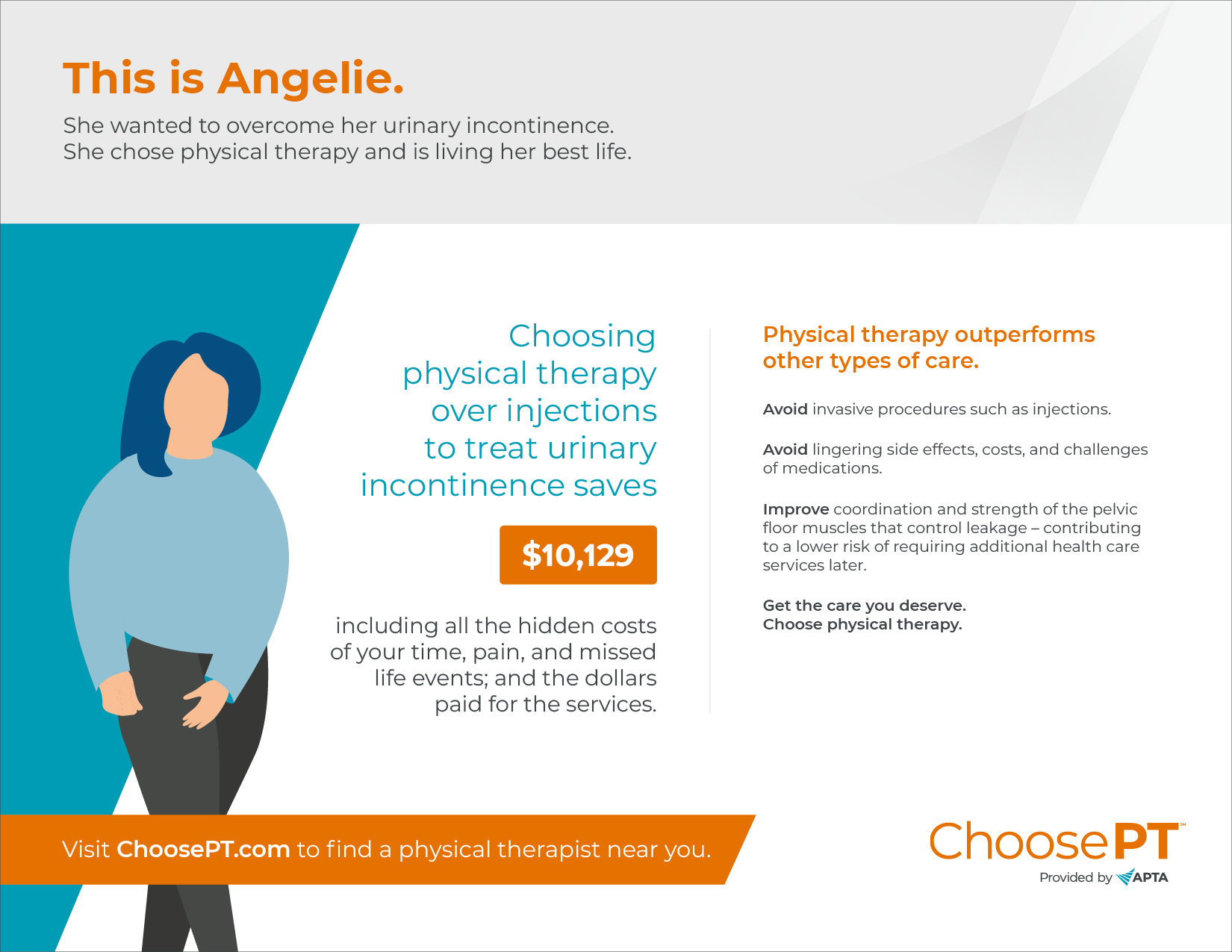Research has shown that physical therapy is an effective treatment for stress urinary incontinence. A new study offers yet another reason to choose or recommend physical therapy to treat SUI – the overall value it provides.
Stress urinary incontinence is the accidental leakage of urine that happens with exercise, coughing, laughing, or sneezing. It occurs when the muscles and tissues (pelvic floor) that keep the urethra closed under stress become too weak to provide the needed support.
Choosing physical therapy to treat stress incontinence outperforms urethral bulking injections (the permanent implanting of a substance injected into the wall of the urethra). In addition to saving health care dollars, it helps patients to:
- Improve coordination and strength of the pelvic floor muscles that control leakage.
- Avoid invasive procedures such as injections.
- Lower the risk of needing additional health care services down the road.
- Avoid lingering side effects, costs, and challenges of medications.
Learn more about physical therapist treatment in the Physical Therapy Guide to Urinary Incontinence.

Researchers calculated the economic impact of choosing physical therapy for SUI over injections for urethral bulking. They found that it saves $10,129, including all the hidden costs of your time, pain, missed life events, and the dollars paid for services. This graphic summarizes their analysis, outlined in an easy-to-read paper covering this and seven other conditions.
Health care dollars are finite. This research can help to influence policies that better enable patient access to treatment options. It also may lead to health plan coverage that is both clinically effective and value-based. Patients and the health care system benefit when our health care dollars go further.
Physical therapists are movement experts. They improve quality of life through hands-on care, patient education, and prescribed movement. You do not need a referral* to see a physical therapist in the United States. Visit Find a PT to search for a physical therapist in your area.
*Your insurance policy, corporate policies, or state practice laws may still require a referral. Some states may limit the type or duration of treatment without a referral.
View additional Did You Know? articles on all eight conditions on our Value of Physical Therapy page.
Additional Resources
- Physical Therapy Guide to Urinary Incontinence
- Stress-Induced Urinary Incontinence: Common But Not Normal
- Fourth Trimester: What Is It and Why Is It Important?
- 5 Tips for Physical Activity After Childbirth
- Foundational Paper on the Economic Value of Physical Therapy in the United States — a Report from the American Physical Therapy Association


